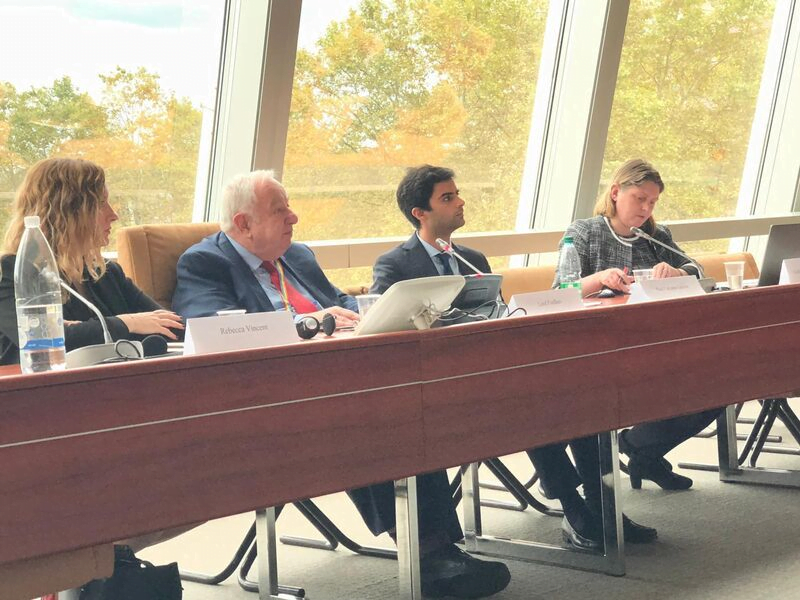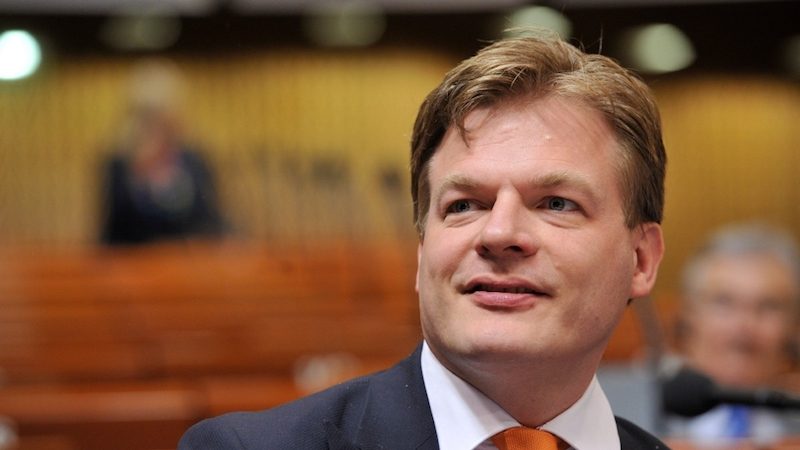The Maltese government’s “knee-jerk reaction” to attack the credibility of Special Rapporteur Pieter Omtzigt rather than address the issues raised at the Parliamentary Assembly of the Council of Europe has raised concern.
On Monday, Omtzigt presented a 15-point statement outlining concerns with the proposed inquiry into the assassination of journalist Daphne Caruana Galizia announced by the Maltese government two weeks ago.
“In my view, the inquiry as currently constituted clearly does not meet the Assembly’s expectations. I intend to continue following the situation in advance of the next meeting of the Committee (14-15 November),” according to the statement presented to the Assembly and adopted with a large majority.
The legal affairs committee of the Council of Europe (with MPs of 47 European countries)
approved this statement on the proposed Daphne Caruana Galizia inquiry with a very large majority today
(1) pic.twitter.com/chLYLqNBxH— Pieter Omtzigt (@PieterOmtzigt) September 30, 2019
The Maltese government reacted with a statement in Maltese that did not address the concerns raised. Instead, the statement focused on attacking Omtzigt’s “credibility” and his “integrity”.
The government was given a three-month deadline by PACE to establish an independent public inquiry back in June. The government conceded, just six days before the deadline expired, but questions were immediately raised about the impartiality of the members appointed by the Prime Minister.
“The credibility of the inquiry depends on the public having the greatest possible access” to the findings, Omtzigt said. The family of the murdered journalist “should enjoy a privileged position, including the possibility of presenting procedural motions, questioning witnesses, and making submissions”.
The Special Rapporteur addressed the State broadcaster TVM’s coverage of the government line that his statement was “full of inaccuracies”, replying to the social media post directly and pointing out his draft statement was available for all MPs in the legal affairs committee late last week, including the Labour Party’s Head of Delegation MP Manuel Mallia.
Secondly: the draft statement was available for all MP’s in the legal affairs committee late last week. That includes @drmanuelmallia.
— Pieter Omtzigt (@PieterOmtzigt) September 30, 2019
What’s the problem?
The 15-point statement raised concerns over the vague wording used in the government’s terms of reference for the inquiry, especially with regard to the focus on the role of “the State” and “State entities”, which Omtzigt feared might be used to limit the mandate of the investigation.
“It is essential that the present inquiry investigates whether the activities of political and public office-holders may have contributed to a general climate of impunity and an atmosphere of hostility towards journalists such as Caruana Galizia,” he said.
Concerns were also raised over vaguely worded powers to hold hearings ‘in camera’ and the need to spell out in detail exactly when it might be acceptable to operate behind closed doors. “The circumstances in which public access to the present inquiry may be restricted should be specified exhaustively and restrictively.”
Omtzigt also objected to the government’s timeline, which states that the Board will “endeavour to conclude its work within a time frame of nine months without prejudice to the proper fulfilment of these terms of reference”, pointing out that such language suggests “the possibility of considerable delay”.
The public inquiry into the murder of #DaphneCaruanaGalizia recently announced “clearly does not meet the Assembly’s expectations” as currently constituted, according to an information note by PACE rapporteur @PieterOmtzig, endorsed by @PACE_LegalHR today: https://t.co/syQYuk6bIz
— European Centre for Press and Media Freedom (@ECPMF) September 30, 2019
Finally, the impartiality of the three Board members appointed by the prime minister came into question, with Omtzigt stating that “one member is involved in the related criminal investigation; another is a lawyer who has been retained by the present government and currently represents or has represented at least three subjects of Ms Caruana Galizia’s reporting; and the third holds a discretionary government appointment.”
The statement adopted by PACE called for the government to commit to publishing the results of the inquiry immediately and in full, and for the government to “commit itself to responding promptly to any recommendations contained in the final report, indicating a time-frame for rapid implementation.”
‘We are focused on getting an inquiry that Malta deserves’
The government reacted immediately to Omtzigt’s statement, with a reply published only in Maltese, saying the Special Rapporteur has “a serious credibility problem” because of his involvement in the investigation into the crash of the MH17 plane.
Omtzigt had come under fire in 2017 over claims that he helped a fake witness to the MH17 disaster over Ukraine infiltrate a briefing attended by victims’ relatives.
The Maltese government has repeatedly attempted to discredit the Special Rapporteur, with the Prime Minister using the MH17 line in parliament even before Omtzigt had drafted his report on Malta that was then adopted by the Parliamentary Assembly in a resolution last May.
At the time, Socialist MP Lord George Foulkes had said in Strasbourg it was “disgraceful” that Omtzigt was being “subjected to attacks by Malta government MPs for his work”.
A side event was held at PACE earlier on Monday to discuss the “widespread concerns” over the independence and impartiality of the investigation.

(From right) Caoillfhionn Gallagher (Barrister, Doughty Street Chambers), Paul Caruana Galizia, Lord George Foulkes (SOC), and Rebecca Vincent (RSF) at the Council of Europe in Strasbourg on Monday.
The event was sponsored by Lord Foulkes (UK, SOC), Thorhildur Sunna Ævarsdóttir (Iceland, SOC), and Stefan Schennach (Austria, SOC), and supported by Reporters Without Borders, ARTICLE 19, Committee to Protect Journalists, the European Centre for Press and Media Freedom, IFEX, the International Press Institute, and PEN International.
Paul Caruana Galizia, son of the murdered journalist, spoke about his family’s concerns. “We are focused on getting an inquiry that Malta deserves,” he said. “This isn’t just a murder investigation, this is Malta’s truth and justice commission to unravel all of the problems we have seen and heard, as well as issues with the institutions that enabled my mothers’ assassination.”
Rebecca Vincent, UK Bureau Director of Reporters Without Borders (RSF), welcomed the position taken by PACE, stating that RSF shared their concerns. “We are concerned by the knee-jerk reaction of the Maltese government once again attacking Omtzigt’s credibility,” she said.
“Omtzigt’s work as PACE Special Rapporteur has been crucial to the fight for justice for the assassination of Daphne Caruana Galizia, and he has carried out this difficult role with integrity and compassion,” she added, urging the Maltese authorities to heed the serious concerns articulated by the Legal Affairs and Human Rights Committee.
The delegation, which included Barristers Jonathan Price and Caoillfhionn Gallagher from Doughty Street Chambers, met with Secretary-General Marija Pejčinović Burić after the event to discuss the case, including developments in the inquiry.












